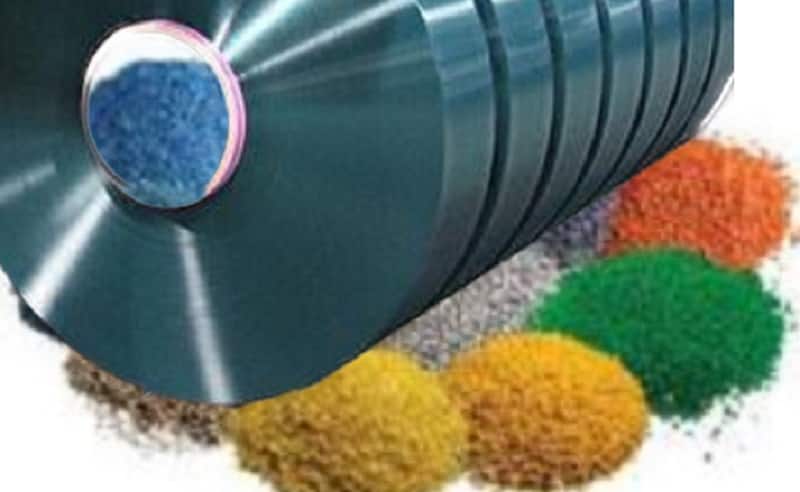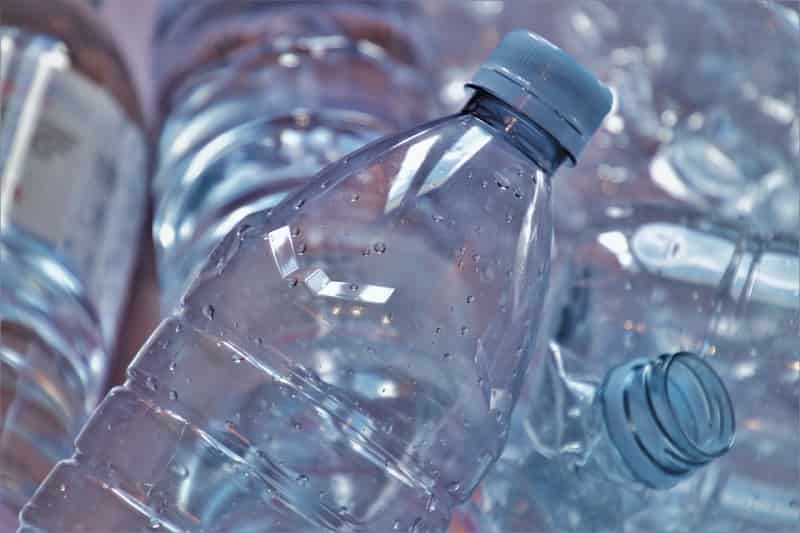Polyester – Neste and Braskem have entered into a significant partnership to provide renewable and recycled feedstocks for polymer and chemical production, marking a major shift in the sustainability of materials for the plastics and chemical industries 28-10-2024
Polyester

- Packaging – SK Chemicals, a leading innovator in sustainable materials, has unveiled its latest product, “ECOTRIA CLARO 300,” a cutting-edge copolyester designed to boost recyclability and improve the performance of molded packaging 21-10-2024
- New enzyme technology for environmentally friendly plastic recycling
Polyester
Neste and Braskem have entered into a significant partnership to provide renewable and recycled feedstocks for polymer and chemical production, marking a major shift in the sustainability of materials for the plastics and chemical industries
Braskem, the largest thermoplastic resin producer in the Americas, aims to integrate these feedstocks into its product line starting in the fourth quarter of 2024, with products mainly distributed across South America under Braskem’s Wenew brand.
A Step Toward Sustainable Production
Fabiana Quiroga, Director of Circular Economy at Braskem South America, emphasized the importance of this collaboration with Neste as a key step toward circular economy goals. According to Quiroga, the partnership represents an industry milestone by meeting high-quality standards while promoting environmental responsibility from the beginning of the production process. The renewable feedstocks will enable Braskem to shift toward a more sustainable, resource-efficient production model, minimizing the need for virgin fossil materials and reducing environmental impacts. Polyester
Introducing Neste RE™ Feedstock
Under the agreement, Braskem will produce resins and chemicals using Neste’s sustainable feedstock, Neste RE™, which combines recycled materials and renewable inputs. The recycled component of Neste RE™ is derived from plastic waste processed through advanced chemical recycling. This process breaks down plastics that are typically challenging to recycle, such as multi-layered or colored plastics, making them usable once more as high-quality feedstock. The renewable component, meanwhile, is sourced from sustainable raw materials like used cooking oil (UCO), offering an alternative to traditional fossil-based inputs.
Jeroen Verhoeven, Commercial Director for Polymers and Chemicals at Neste, expressed optimism about the partnership’s role in advancing a more sustainable plastics and chemicals industry in South America. By reducing reliance on virgin fossil materials, the collaboration is expected to enhance circular practices across the sector, making sustainable options more accessible and aligning with global efforts to cut greenhouse gas (GHG) emissions. Polyester
Mass Balance Certification for Traceability
The integration of Neste’s feedstocks into Braskem’s operations will follow the ISCC PLUS-certified mass balance approach. This system is internationally recognized for verifying sustainability and carbon standards, providing assurances to customers about the responsible sourcing and custody of materials throughout the supply chain. The ISCC PLUS certification is an essential part of ensuring the environmental credibility of the products and a critical tool for verifying the consistency of sustainable practices from sourcing to end-use.
Reducing Environmental Footprint
Neste RE™ addresses two of the most promising avenues for reducing the environmental impact of polymers: chemical recycling and renewable feedstocks. Chemical recycling transforms hard-to-recycle plastics, which would otherwise end up as waste, into high-quality, reusable materials, ultimately diverting significant volumes of plastic waste from landfills and ecosystems. Polyester
By leveraging this approach, Braskem can contribute to closing the loop on plastics, improving recycling rates and enhancing circularity in its supply chain.
On the renewable side, the feedstock produced by Neste uses raw materials like UCO and waste fats, substantially lowering greenhouse gas emissions when used as a substitute for fossil-based feedstocks. The use of these materials enables the creation of products with a reduced carbon footprint, supporting broader climate goals. Importantly, these renewable feedstocks are approved for sensitive applications such as food-contact packaging, a major achievement in the industry. The Brazilian Health Regulatory Agency (ANVISA) has recognized chemical recycling as a method that produces materials indistinguishable from traditional fossil-based counterparts, allowing their use in food-safe applications without requiring additional approvals. Polyester
A Forward-Thinking Solution for the Industry
Through this innovative combination of renewable and recycled materials, Neste and Braskem are setting a precedent for the plastics and chemicals sector. By integrating sustainable practices from the source, they are paving the way for a reduced dependence on virgin fossil feedstocks, addressing both waste reduction and emissions concerns. The adoption of these advanced materials in South America further signals the region’s readiness to embrace sustainable innovation, encouraging local industries and markets to shift toward greener alternatives.
Accelerating the Circular Economy
Braskem’s commitment to a circular economy is central to this agreement, highlighting a shared vision with Neste for a future where production and recycling form a continuous cycle. Through this collaboration, Braskem aims to increase the use of renewable and recycled feedstocks across its product lines, advancing its sustainability targets and supporting a circular value chain. Polyester
With the inclusion of recycled content, the environmental impact of plastics and chemicals can be substantially mitigated, reducing dependency on new fossil inputs and fostering a market that prioritizes recycling and reuse.
Neste’s renewable feedstock solutions allow Braskem to address rising consumer demand for environmentally responsible products, particularly in the Wenew portfolio. As sustainability becomes an increasingly important factor in consumer choices, Braskem’s ability to deliver eco-friendly options in both the chemical and polymer sectors strengthens its market position while contributing to broader environmental goals. Polyester
Outlook for Sustainable Development
The Neste-Braskem partnership aligns with industry-wide goals for reducing environmental impacts and supporting sustainable development. By advancing the availability and adoption of alternative feedstocks, they offer a model that could inspire other players in the sector to adopt similar approaches. As the use of renewable feedstocks expands, the industry will likely see an increase in innovative recycling methods and a shift towards more sustainable production practices, setting new benchmarks for circular economy practices in the years to come.
The Neste-Braskem collaboration reflects a powerful commitment to transforming the plastics and chemicals landscape, providing an example of how industrial partnerships can foster meaningful progress in sustainability. Polyester
As this approach gains traction, it signals a broader industry shift where traditional production models give way to greener alternatives, benefiting both businesses and the environment alike. With Neste and Braskem leading the charge, the transition to a circular economy in the plastics and chemicals sector is one step closer to reality.

Technip Energies and Enerkem formalize collaboration to advance waste-to-sustainable fuels and circular chemicals technology
Technip Energies (Paris: TE) and Enerkem Inc. announce the official signing of their Collaboration Agreement, solidifying their commitment to accelerate the deployment of Enerkem’s technology converting non-recyclable waste and residues into sustainable fuels and circular chemical products. Polyester
Enerkem’s groundbreaking gasification technology caters to hard-to-abate sectors such as aviation and marine fuels, providing sustainable fuel and chemical pathways. Under the terms of the agreement, Technip Energies and Enerkem will provide everything from strategic plant design and modularized project delivery services to clients.
As Enerkem’s strategic partner, Technip Energies will contribute its expertise in engineering (incl. modularization), technology integration (hydrogen, carbon capture, etc.) and project delivery to support joint development of such projects. The collaboration will focus on strategic efforts to further optimize design elements and industrialize the approach to offer a cost-effective solution.
Bhaskar Patel, SVP Sustainable Fuels, Chemicals and Circularity of Technip Energies, said: “We are pleased to deepen our relationship with Enerkem for the deployment of its technology platform to convert waste into sustainable fuels and chemicals. Together, we will leverage our design and engineering expertise to provide sustainable solutions using non-recyclable wastes as feedstock.” Polyester






